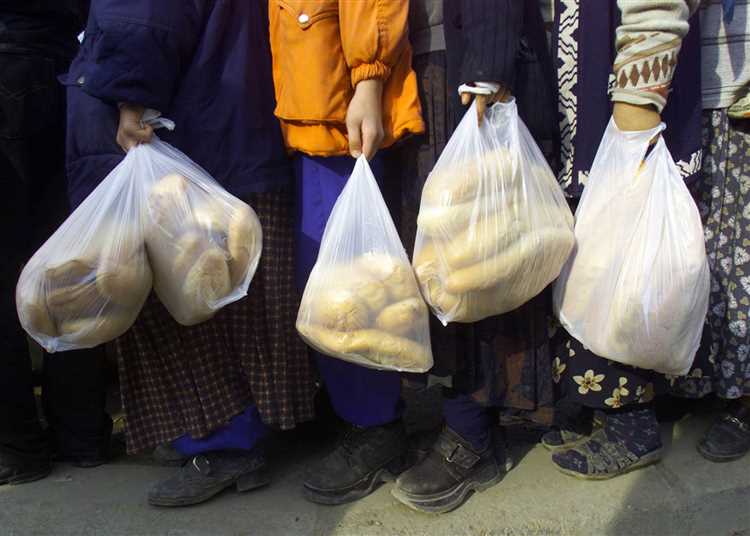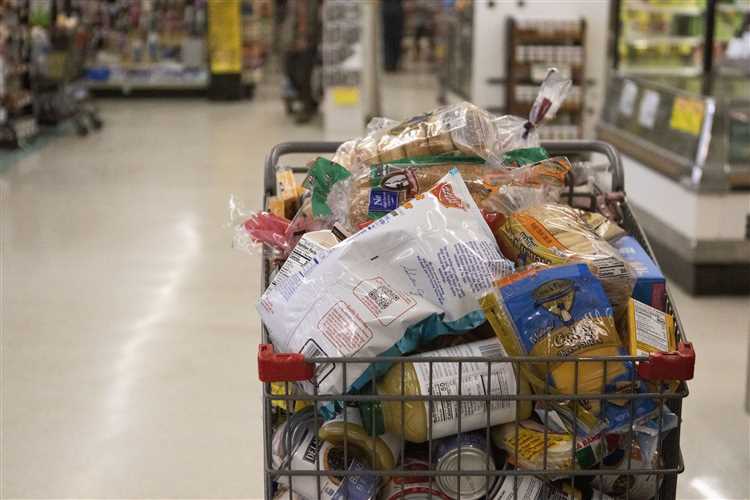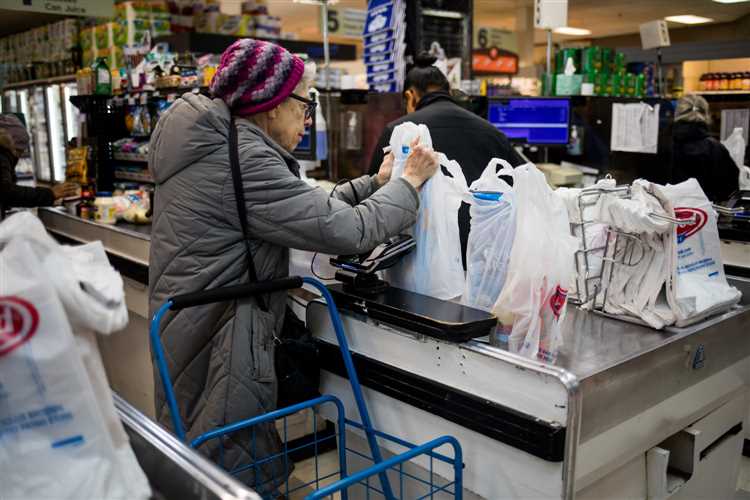In recent years, there has been a significant shift in grocery stores towards the use of plastic bags. This change has been driven by a variety of factors, including convenience, cost-effectiveness, and concerns about the environmental impact of alternative options.
One of the main reasons behind the shift to plastic bags is their convenience. Plastic bags are lightweight, easy to carry, and can be used for a variety of purposes beyond just carrying groceries. They are also easy to store and can be folded up and placed in a purse or pocket, making them a convenient choice for both shoppers and store employees.
Another factor driving the shift to plastic bags is cost-effectiveness. Plastic bags are cheaper to produce and transport than alternative options, such as paper or reusable bags. This cost savings can be passed on to consumers, making plastic bags an attractive choice for both grocery stores and shoppers on a budget.
However, one of the main concerns about plastic bags is their environmental impact. Plastic bags are not biodegradable and can take hundreds of years to break down in the environment. This has led to increased efforts to reduce plastic bag usage and find more environmentally friendly alternatives.
In conclusion, the shift to plastic bags in grocery stores is driven by a combination of convenience, cost-effectiveness, and concerns about the environmental impact of alternative options. While plastic bags may be convenient and cost-effective, their long-term effects on the environment are a cause for concern. As a result, it is important for grocery stores and shoppers to continue exploring more sustainable alternatives.
- Environmental impact of plastic bags
- Convenience and cost-effectiveness of plastic bags
- Durability and functionality of plastic bags
- Functionality of plastic bags
- Ease of production and distribution of plastic bags
- Changing consumer attitudes towards plastic bags
- Benefits of Using Reusable Bags
- The Future of Plastic Bag Usage
- Question-Answer:
- What are the reasons behind the shift to plastic bags in grocery stores?
- Why have grocery stores started using plastic bags instead of paper bags?
- What are the advantages of using plastic bags in grocery stores?
- Are there any disadvantages to using plastic bags in grocery stores?
- What are the potential solutions to reduce the use of plastic bags in grocery stores?
- Why have grocery stores switched to using plastic bags?
Environmental impact of plastic bags
Plastic bags have a significant negative impact on the environment due to their extensive use and improper disposal. Here are some of the key environmental concerns associated with plastic bags:
|
1. Pollution: Plastic bags are non-biodegradable and can persist in the environment for hundreds of years. When plastic bags are discarded, they often end up in landfills or as litter in water bodies. This pollution can harm wildlife, such as marine animals, birds, and turtles, who may mistake the bags for food or become entangled in them. |
|
2. Greenhouse gas emissions: The production of plastic bags requires the extraction and refinement of fossil fuels, which releases greenhouse gases into the atmosphere. These gases contribute to climate change and global warming, leading to more extreme weather events and environmental degradation. |
|
3. Energy and resource consumption: The manufacturing process of plastic bags consumes significant amounts of energy and resources, including water and petroleum. These resources are finite and can lead to environmental depletion and increased carbon emissions. |
|
4. Microplastic contamination: Plastic bags can break down into smaller pieces called microplastics, which can contaminate soil and water. These microplastics can be ingested by organisms and enter the food chain, posing a potential threat to human health and ecological stability. |
Given these environmental concerns, it is crucial to find alternatives to plastic bags that are more sustainable and eco-friendly. Reusable bags made from materials like cloth, jute, or paper offer a greener alternative and can help reduce the overall environmental impact.
Convenience and cost-effectiveness of plastic bags

One of the main factors driving the shift to plastic bags in grocery stores is the convenience they offer. Plastic bags are lightweight and easy to carry, making them a popular choice for shoppers. Their durability also allows them to be reused multiple times, providing an added convenience for consumers.
In addition to convenience, plastic bags are cost-effective for both grocery stores and consumers. Plastic bags are cheaper to produce compared to alternatives like paper or cloth bags. This cost advantage is passed on to consumers, with many stores providing plastic bags free of charge. The low cost of plastic bags also helps grocery stores reduce their packaging expenses.
Furthermore, plastic bags are space-efficient. They take up significantly less storage space compared to bulkier alternatives like paper bags, allowing stores to store and transport larger quantities of bags more easily. This space efficiency also translates to a more streamlined checkout process, as plastic bags can be quickly and easily packed.
Another aspect that contributes to the cost-effectiveness of plastic bags is their resistance to moisture and contamination. Plastic bags offer a protective barrier against spills or leaks from groceries, reducing the risk of damage to other purchases. This can help prevent potential losses for grocery stores and ensure customer satisfaction.
Overall, the convenience and cost-effectiveness of plastic bags make them a popular choice for grocery stores and consumers alike. However, it is important to consider the environmental impact of plastic bags and explore alternative solutions that are more sustainable.
Durability and functionality of plastic bags
Plastic bags have gained popularity in grocery stores due to their durability and functionality. Unlike paper bags, plastic bags are designed to be sturdy and long-lasting. They do not tear easily, even when carrying heavy items, making them a reliable choice for customers.
The durability of plastic bags is a significant advantage for both retailers and consumers. Retailers can use these bags multiple times before needing to restock, ultimately reducing their costs. For consumers, the strength of plastic bags ensures that their groceries and other purchased items remain secure during transportation, preventing accidents like spilled or damaged products.
Functionality of plastic bags
One of the main reasons why grocery stores have shifted to using plastic bags is their functionality. Plastic bags are lightweight, making them easy to carry around while shopping. They also have handles, which allows shoppers to comfortably hold and transport their items. This convenience has made plastic bags a preferred choice for customers who value ease of use while shopping.
Another aspect of the functionality of plastic bags is their water resistance. Unlike paper bags, plastic bags are less likely to get wet and tear, providing additional protection for groceries on rainy days or when handling liquid items. This water resistance makes plastic bags particularly suitable for carrying items that could leak or spill, such as bottles or containers with sauces or liquids.
Ease of production and distribution of plastic bags
One of the main reasons behind the shift to plastic bags in grocery stores is the ease of production and distribution. Plastic bags can be produced relatively quickly and at a low cost, making them a convenient option for retailers.
The production of plastic bags involves a simple process that can be easily replicated in large quantities. Raw materials such as polyethylene or polypropylene are used to create the bags, which are then heat-sealed to form a durable and waterproof product.
Plastic bags are also lightweight and compact, which makes them easy to store and transport. They can be easily stacked and packed, allowing large quantities of bags to be shipped and distributed to various locations. This convenience in production and distribution makes plastic bags a popular choice for grocery stores.
| Advantages | Disadvantages |
|---|---|
| Low production cost | Environmental impact |
| Easy storage | Single-use nature |
| Efficient transportation | Plastic waste |
While the ease of production and distribution of plastic bags has contributed to their widespread use, it is important to consider the negative impact these bags have on the environment. The convenience they offer must be weighed against their negative effects, such as their contribution to plastic waste and their non-biodegradable nature.
Changing consumer attitudes towards plastic bags

Over the years, there has been a notable shift in consumer attitudes towards the use of plastic bags in grocery stores. Once considered a convenient and cost-effective option, plastic bags are now viewed as a major environmental concern.
Increasing awareness about the negative impact of plastic bags on the environment has led to a change in consumer behavior. People are now more conscious of the importance of reducing plastic waste and protecting our planet.
One major factor contributing to this change in attitude is the prevalence of information regarding the detrimental effects of plastic bags. Through various channels, such as news articles, documentaries, and social media campaigns, consumers are now exposed to the environmental consequences of plastic bag usage.
| Environmental Consequences of Plastic Bag Usage |
|---|
| 1. Plastic bags take hundreds of years to decompose, contributing to long-term pollution. |
| 2. They often end up in water bodies, posing a significant threat to marine life. |
| 3. Plastic bag production requires the consumption of limited resources like oil and gas. |
| 4. Plastic bags contribute to the overflowing of landfills, taking up valuable space. |
In response to these concerns, many consumers have made a conscious decision to reduce or eliminate their use of plastic bags. This shift in consumer behavior has been manifested through the increasing popularity of reusable bags, including cloth and canvas options.
Furthermore, governments and organizations have implemented various initiatives to encourage the adoption of eco-friendly alternatives. This includes the introduction of plastic bag bans, taxes, and incentives for using reusable bags.
Benefits of Using Reusable Bags

1. Reusable bags are more durable, reducing the need for frequent replacements.
2. They can carry a larger volume of items, leading to fewer trips to the store.
3. By using reusable bags, consumers actively contribute to reducing plastic waste and minimizing pollution.
4. Reusable bags are often made from sustainable materials, such as cotton or recycled materials.
The Future of Plastic Bag Usage
As consumer attitudes continue to evolve, it is likely that the use of plastic bags in grocery stores will further decline. This shift presents an opportunity for the industry to explore and promote more sustainable packaging options. By investing in research and innovation, retailers can find alternatives that are both environmentally friendly and convenient for consumers.
Question-Answer:
What are the reasons behind the shift to plastic bags in grocery stores?
There are several reasons behind the shift to plastic bags in grocery stores. One reason is that plastic bags are cheaper to produce and purchase compared to other alternatives. Another reason is that plastic bags are lightweight and easy to carry, making them convenient for consumers. Additionally, plastic bags are durable and can hold a significant amount of groceries without tearing. However, it is important to note that the shift to plastic bags has raised concerns about their environmental impact.
Why have grocery stores started using plastic bags instead of paper bags?
Grocery stores have started using plastic bags instead of paper bags due to several factors. Plastic bags are cheaper and more cost-effective for stores to purchase and provide to customers. Additionally, plastic bags are more durable and can hold heavier items without breaking, which is beneficial for both the customers and the store. Moreover, plastic bags are lightweight and take up less space, making them easier to store and transport.
What are the advantages of using plastic bags in grocery stores?
Using plastic bags in grocery stores has several advantages. Firstly, plastic bags are cheaper to produce and purchase compared to other alternatives like paper bags. Secondly, plastic bags are lightweight and easy to carry for both the customers and store employees. Thirdly, plastic bags are more durable and can hold heavy items without tearing. However, it is important to consider the environmental impact of using plastic bags.
Are there any disadvantages to using plastic bags in grocery stores?
Yes, there are several disadvantages to using plastic bags in grocery stores. One major disadvantage is the harmful environmental impact of plastic bags. Plastic bags are not biodegradable and can take hundreds of years to decompose, leading to pollution and harm to wildlife. Additionally, the production of plastic bags contributes to the depletion of non-renewable resources like oil. It is important to consider using alternatives like reusable bags to minimize these negative effects.
What are the potential solutions to reduce the use of plastic bags in grocery stores?
There are several potential solutions to reduce the use of plastic bags in grocery stores. One solution is to promote the use of reusable bags by offering discounts or incentives to customers who bring their own bags. Another solution is to encourage the use of biodegradable or compostable bags instead of traditional plastic bags. Additionally, increasing awareness about the environmental impact of plastic bags and educating consumers about sustainable alternatives can also help reduce their use.
Why have grocery stores switched to using plastic bags?
Grocery stores have switched to using plastic bags for a few reasons. One of the main reasons is that plastic bags are cheaper to produce than paper bags. Additionally, plastic bags are more durable and can hold heavier items without breaking. This makes them a more practical choice for grocery stores.